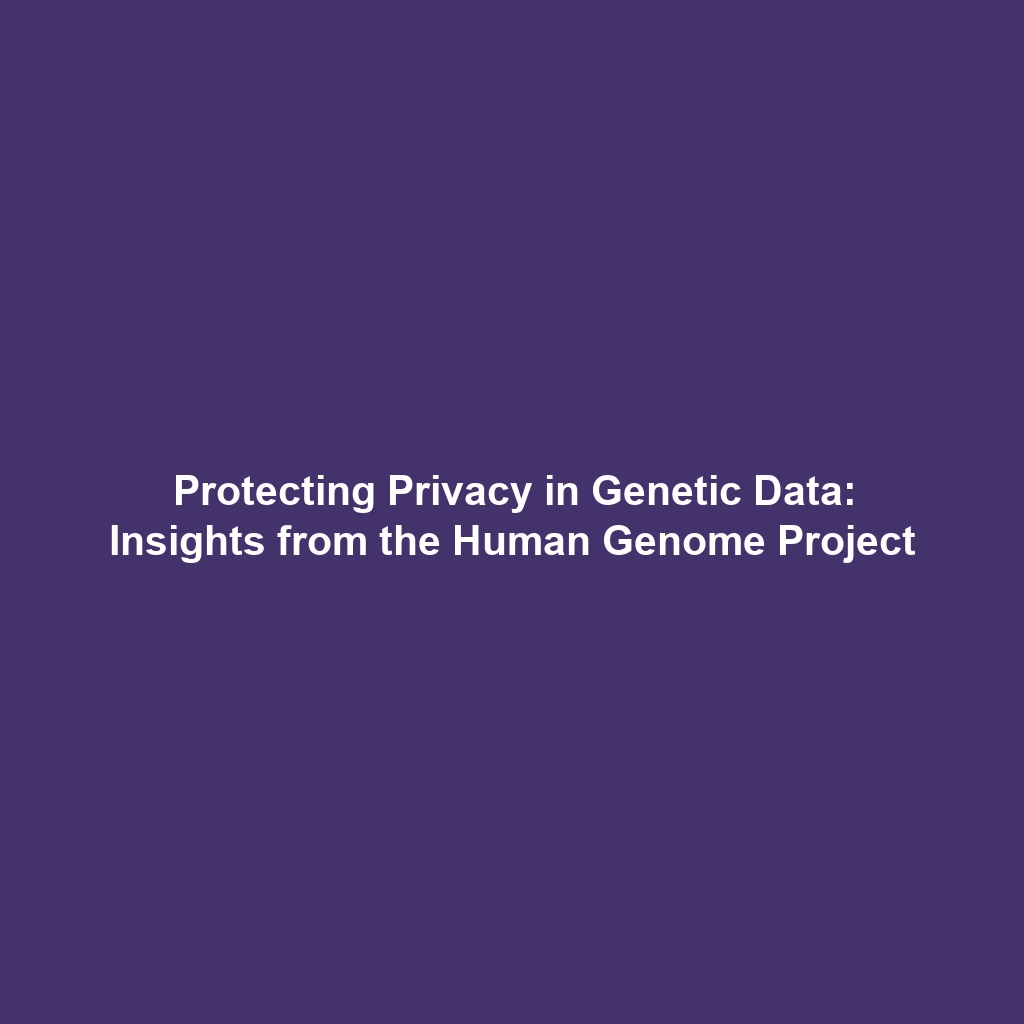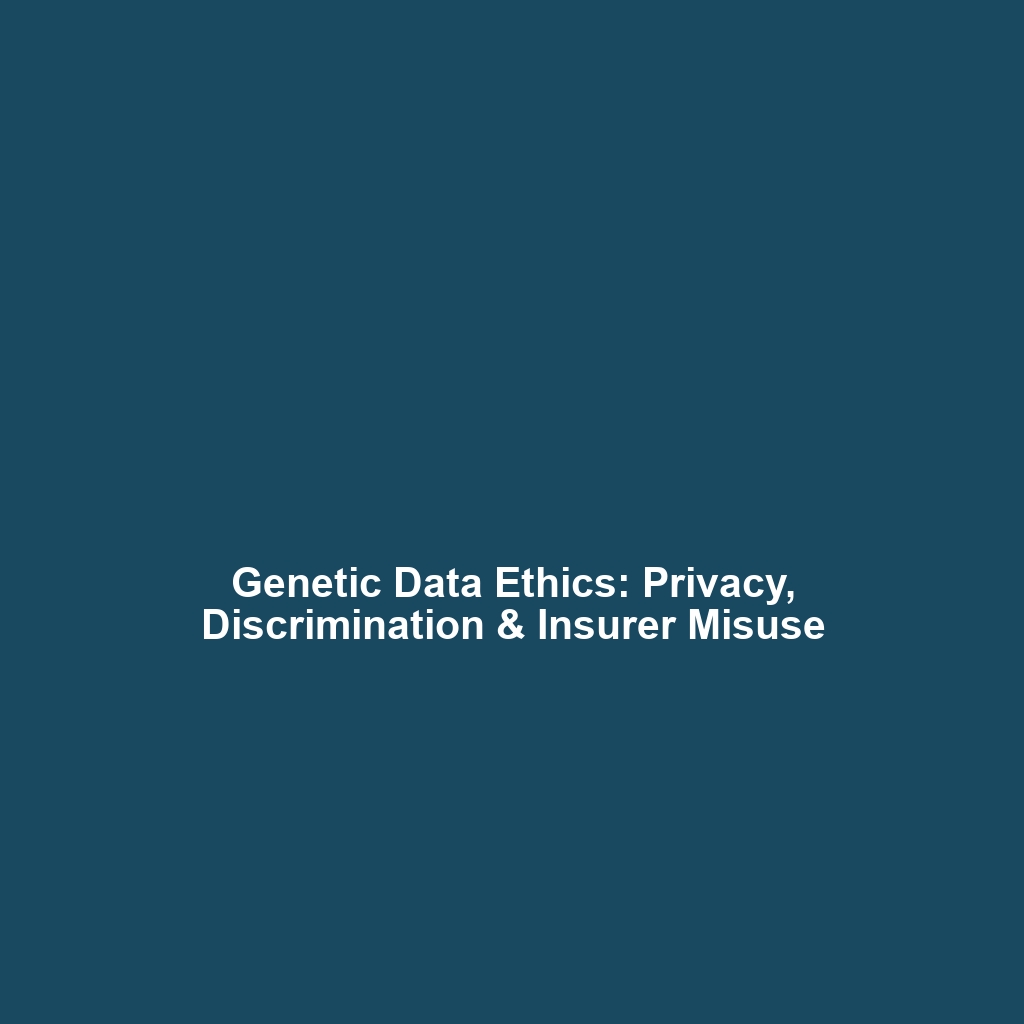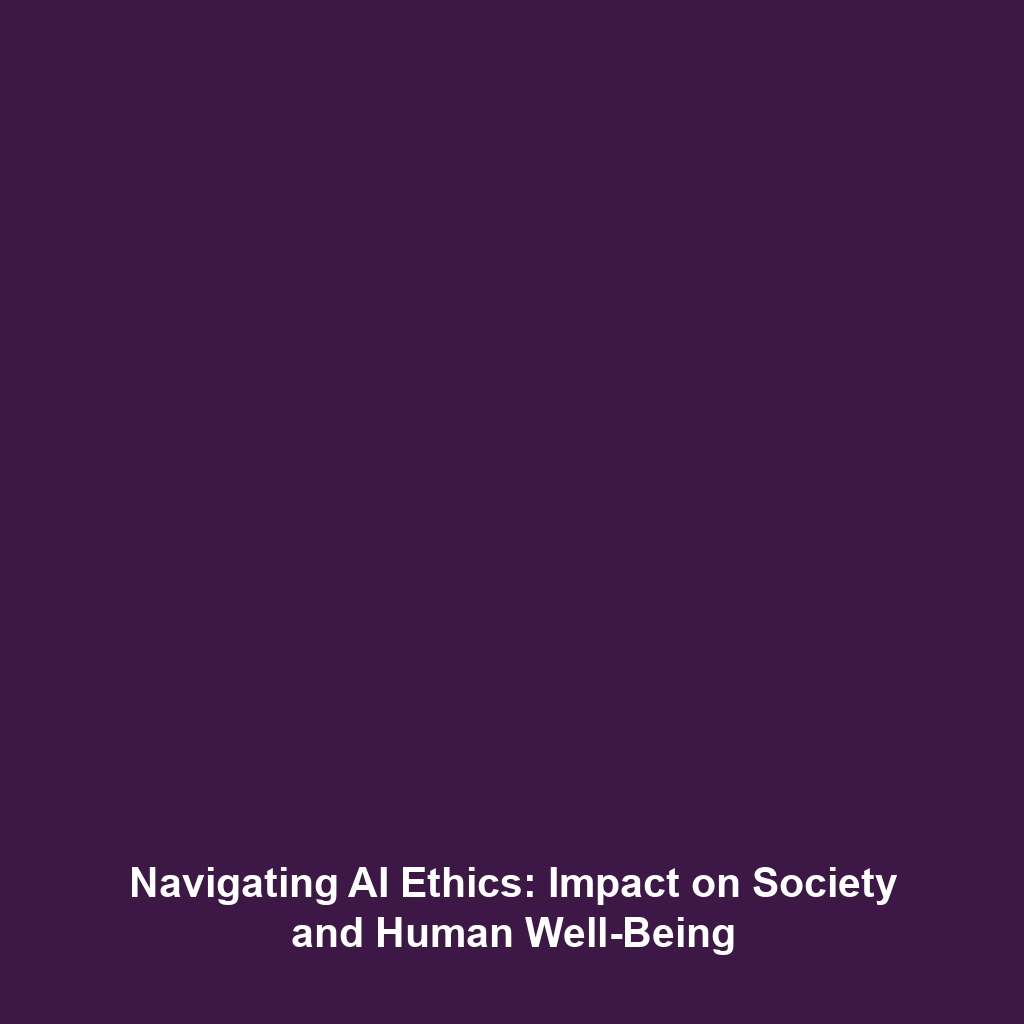Privacy and Genetic Data in the Context of the Human Genome Project
Introduction
The intersection of privacy and genetic data has gained significant attention, particularly following the groundbreaking Human Genome Project. As the ability to decode personal genetic information advances, the implications for privacy become increasingly complex. Genetic data can reveal sensitive information about an individual, including predispositions to certain diseases, ancestry, and more. This article examines the critical issues surrounding privacy and genetic data, highlighting its importance in the broader landscape of the Human Genome Project and its ongoing relevance in today’s society.
Key Concepts
Understanding Genetic Data Privacy
At the core of the discussion about privacy and genetic data lies the importance of informed consent. Individuals must be made aware of how their data will be used, stored, and shared. Key concepts include:
- Informed Consent: A crucial principle ensuring individuals understand the extent and implications of data usage.
- Data Anonymization: Techniques used to protect individual identities while allowing for data analysis.
- Data Ownership: Who has the legal rights to data and the authority to share it.
These principles are essential in ensuring that the advancements made during the Human Genome Project respect personal privacy.
Applications and Real-World Uses
The implications of privacy and genetic data can be seen in various real-world applications:
- Personalized Medicine: Genetic information aids in customizing medical treatments based on individual genetic makeup.
- Public Health Research: Aggregate data can help track diseases and develop public health strategies while still focusing on privacy concerns.
- Genetic Testing Services: Companies like 23andMe utilize genetic data to provide ancestry and health insights, emphasizing the importance of securing consumer data.
Understanding how privacy and genetic data is used in the context of the Human Genome Project has significant implications for individual rights and public policy.
Current Challenges
Despite the advancements, several challenges persist in the study and application of privacy and genetic data:
- Data Breaches: Increased risk of unauthorized access to sensitive genetic information.
- Lack of Regulation: Inconsistent laws regarding genetic data protection across different regions.
- Ethical Dilemmas: Concerns about potential misuse of genetic data, leading to discrimination or stigmatization.
Addressing these challenges of privacy and genetic data is crucial for the responsible advancement of genetics research.
Future Research and Innovations
The future of privacy and genetic data research holds exciting possibilities, particularly as next-generation sequencing technologies evolve. Innovations include:
- Enhanced Encryption Methods: Developing stronger ways to protect genetic data from breaches.
- AI in Genetic Research: Artificial intelligence can assist in analyzing genetic data while ensuring privacy through advanced algorithms.
- Policy Development: Advocating for clearer regulations and guidelines to protect individuals’ rights in genetic data use.
These advancements are poised to impact the future of the Human Genome Project significantly.
Conclusion
As we navigate the complex landscape of privacy and genetic data, its relevance within the Human Genome Project is undeniable. The need for robust data protection measures, ethical considerations, and public understanding cannot be overstated. For those interested in further exploring the implications of genetic data privacy, consider delving into our other resources focused on genetics, ethics, and technological innovations here.



